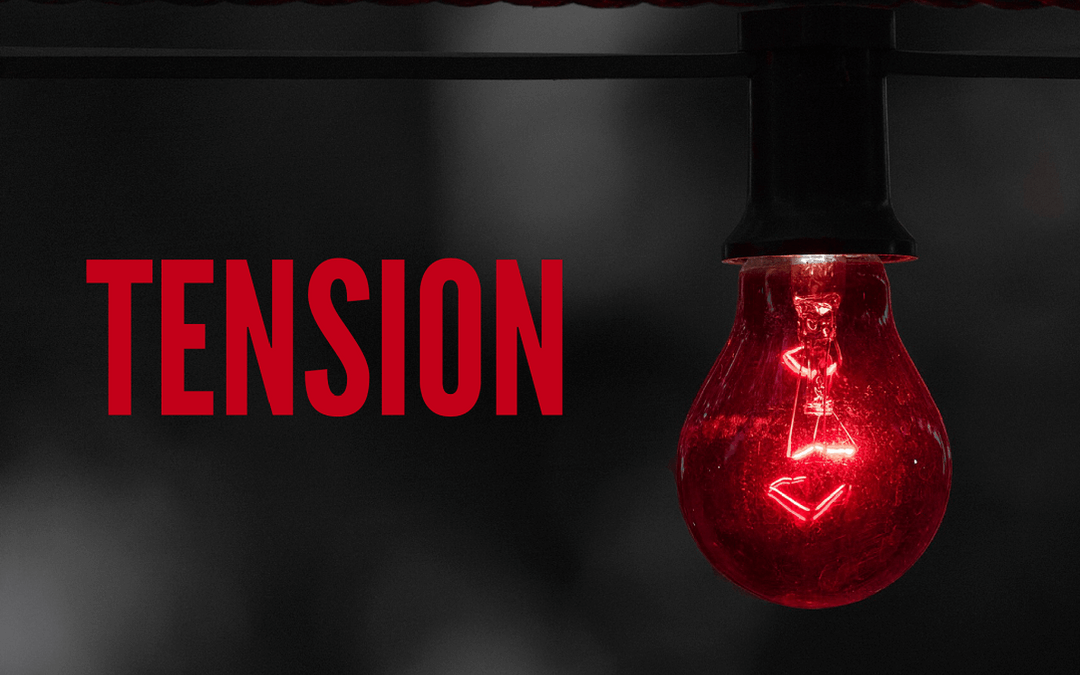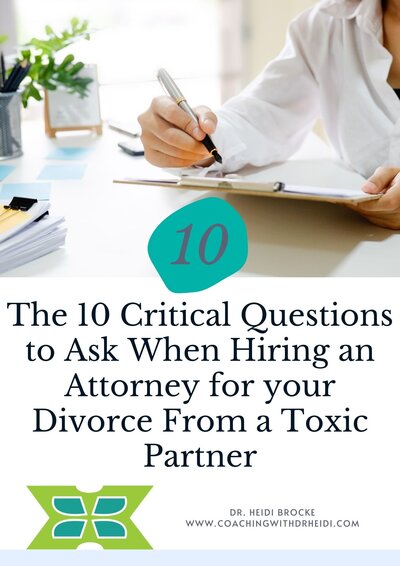Good morning!
Today we are going to be talking about one of the characteristics of a toxic person and how we, ourselves, can learn how to deal with it.
Before we start today, I want to thank people for their questions. Sometimes I forget to say this at the end, so I’m going to say it at the beginning. You can send me questions, if you have them, at my Coaching with Dr. Heidi Facebook or Instagram accounts or through the website. If you would like to be on my mailing list for my upcoming local events, you can opt-in on the website.
Last week we touched on the first characteristic, Criticism. Just to recap: I feel like Criticism is the characteristic that we carry around with us in the fanny pack, no matter how long between relationships. We tend to carry criticisms from others with us.
Today I am moving on to the next characteristic. To lay the groundwork for this one, I’m going to ask a few questions. I’m going to read you a list and I want you to see if you relate to these:
Are you living your life in a fog?
Are you always struggling to diffuse or avoid conflict?
Are you working daily to keep your spirits up?
Are you giving your dreams up for the dreams of others?
Are you constantly striving to do better, work harder?
Do you beg or pray for acceptance and approval?
Do you feel you are unimportant most of the time?
Are you taking the blame when it’s not yours to take?
Are you walking one eggshells a good deal of your life?
Are you carrying around a feeling of tension?
Do you live in fear?
Are you worried about your future?
Are you feeling more and more hopeless as time passes?
Are you feeling like nothing you do is good enough?
These are questions that I ask many of my clients. My goal here is to provide you with the information you need to decide who in your life or in your path may be toxic. Which relationships, past or present, may be unhealthy for you?
If some of those questions hit home with you, let’s do some evaluation of your life and see if, indeed, you are associating with toxic people that may be affecting your life.
The other thing that I may or may not have covered in previous posts is that you get to decide who is in your life. Not your mom. Not your best friend. Not your spouse. Not your kids. You get to decide who’s healthy for you. And as we all know, someone else telling us that we may be in a bad situation does not work. We have to identify where we are and understand the situation for ourselves so we can make the decision for ourselves.
That being said, the questions that I just asked are a list of questions that you may be asking of yourself or about your relationship or situation. Why are you feeling like you’re not happy? Maybe you feel an overwhelming sense of doom or like the bottom is going to drop out. The characteristic I want to talk about today is TENSION.


Again, toxic relationships are not secluded to the home. Toxic relationships are in the home, in friendships, out in the workplace, in social settings. This characteristic as I describe it will probably hit home to many, because you are going to understand this feeling.
When you are around a toxic person or you are around someone who is unhealthy for you, you know that little feeling you get in your stomach? In my past, I noticed that the feeling wasn’t so little. I felt like my stomach was always in a knot. If you are relating to that feeling of tightness in your stomach, do you know what that really is? That is your body’s defense mechanism that is our innate intelligence or our body’s own defense system that tells us something is not safe or something is not right.
For example, when a toxic person’s name perhaps pops up on your phone, or they get home from work, or they walk into the office, you’re headed to their house for a children’s birthday party, you hear their voice, someone asks you about them…you feel your stomach tighten up and you feel an overall feeling of tension.
If you feel this in your life, we need to evaluate who is causing the tension and who is not. You will soon notice that the people that are closest to you will notice you become a completely different person when you are dealing with your toxic person. You will be more happy, relaxed, and more like yourself when you are in a non-threatening situation or you are surrounded by people who are not toxic or who are healthy for you. You are going to be able to be yourself.
But I hear it over and over again with my clients…they are on edge, they feel anxious, they feel out of character, they cannot be themselves, they are worried about what happens if they are themselves when the toxic person is present.
You will notice that the feeling of tension or that tightness in your stomach will be accompanied by changes to your breathing, to your blood pressure, muscle tension, digestive system…and the reason this happens is because of the tension that a toxic person causes.
Now, the reason for the tension could be fear. It could be the ongoing cycle of chaos that you’re in when you’re in the presence of a toxic person. It could be fear of not being perfect or having to be perfect. It could be the fear of being criticized. Tension in our bodies tells us we aren’t safe.
The problem, however, is that the human body is very accommodating. We adapt very quickly to our environment. We get used to the feeling of tension in our stomachs, and pretty soon it’s there so often that we don’t notice it anymore. It’s almost like when you walk into a room that smells; if you stay in the room, you don’t smell it anymore. You become desensitized. The same thing happens within a toxic relationship. We accommodate to the situation, and the sad thing is that our bodies have the ability to adapt for years.
If you are out of the danger zone and you are not presently in the toxic relationship, you may notice that there are certain things around you that cause that feeling in your stomach. I like to call those triggers. Past memories or past feelings are what are triggering those feelings of tension, and you will need to identify them. I have several example of triggers from clients who have been out of toxic relationships for a long time. All of a sudden, they will be upset about something or their stomach will hurt, and we’ll have to backtrack and unearth what was causing that feeling.
I want you to think about this. I’m going to ask you a few questions and I want you to answer them.
Who in your life causes this feeling in your stomach?
Are you living in tension, and if you are what is the location? Where are you at? And who are you with when you feel this tension?
Do you feel that pain in your stomach? Do you notice other bodily changes? Do you start sweating or breathing differently?
Do you notice a change when the toxic person is gone or when you are in a different environment?
Once you accommodate to tension, you don’t realize that you are still in a dangerous situation. If I say this, many of you will relate to it. Many of my clients tell me that “if I tell my friends what goes on in our house, they look at me like I’m crazy and they’ll say, ‘That’s not normal.'” Okay, if you are dealing with the same type of repetitive toxicity within your home or within your work environment or within your friendships, you will accommodate to it. This is the most dangerous part about being in a toxic relationship. We become accustomed to the treatment and accustomed to the feeling of being in danger. It becomes normal to us.
The desensitization of the tension within the toxic relationship is dangerous. If you’ve been raised by toxic parents or have been living with toxic people, it is very difficult to recognize this because it is all you know. I really want you to think on your own situations and the different areas of your life that you feel either relaxed in or tense. Those areas that you feel tension in may be your problem areas.
Again, I don’t want to keep talking about this and my post take an hour and a half to read, but I could seriously talk about this till next Tuesday!
What I want you to do is send me your questions. I’ll be happy to write you a message back. This week, I really want you to think about who in your life causes the tension.
I will be here next week to talk about another characteristic, which many of you will relate to, and that is the character trait of FEAR.
Last week we talked about Criticism, and this week we’ve talked about Tension, so if you have questions about those, go ahead and message me! I am also looking for some guests for my podcast, so if you are interested in doing some questions and answers on my podcast, shoot me a message and I’d be happy to get in touch with you.
In the mean time, love yourself and choose yourself, and I will talk to you next week!









+ view comments . . .